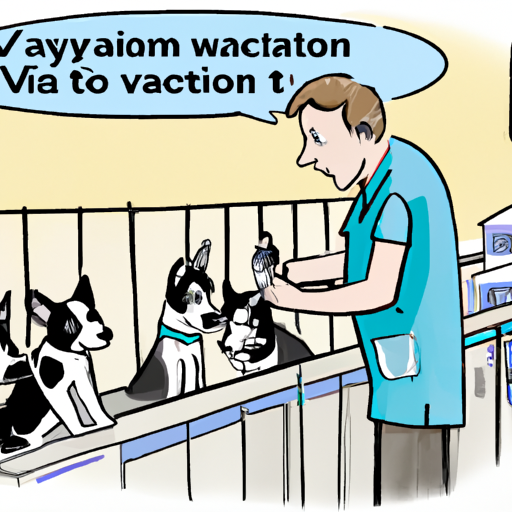As a caregiver, you know that your furry friend’s health is of utmost importance. There’s no better way to ensure this than by making sure they’re up-to-date with their vaccinations, especially when you’re considering boarding them. Here’s what you need to know.
1. Core Vaccines
Core vaccines are the ones that every dog, regardless of their lifestyle or location, should receive. These vaccines protect against the most common and dangerous diseases.
- Rabies: This deadly disease is usually transmitted through the bite of an infected animal. It’s also required by law in most places.
- Canine Distemper: This highly contagious disease affects the respiratory, gastrointestinal, and nervous systems.
- Canine Parvovirus: This highly contagious viral illness can cause severe vomiting and bloody diarrhea.
- Canine Hepatitis: This disease affects the liver, kidneys, spleen, lungs, and eyes.
2. Non-Core Vaccines
Non-core vaccines are optional and depend on your dog’s risk factors. These include their age, medical history, environment, travel habits, and lifestyle.
- Bordetella: Also known as ‘kennel cough,’ this respiratory disease is highly contagious in social situations like boarding.
- Leptospirosis: This bacterial disease is transmitted through the urine of infected animals. It’s more common in areas with a lot of wildlife.
- Lyme Disease: This is transmitted through ticks, so it’s more common in areas with high tick populations.
- Canine Influenza: Just like human flu, this respiratory disease is highly contagious.
| Core Vaccines | Non-Core Vaccines |
|---|---|
| Rabies | Bordetella |
| Canine Distemper | Leptospirosis |
| Canine Parvovirus | Lyme Disease |
| Canine Hepatitis | Canine Influenza |
3. Booster Shots
Just like humans, dogs also need booster shots to maintain their immunity. The frequency of these boosters depends on the specific vaccine and your vet’s recommendation.
4. Puppy Shots
If your dog is a puppy, they’ll need a series of shots to build up their immunity. These usually start at 6-8 weeks of age and continue every 3-4 weeks until they’re 16 weeks old.
5. Preparing for Boarding
Before you board your dog, make sure they’ve received all necessary vaccines at least 2 weeks in advance. This gives their immune system time to respond. Also, bring their vaccination records to show the boarding facility.
FAQs
Q: How often does my dog need a rabies vaccine?
A: Most dogs need a rabies vaccine every 1-3 years, depending on local laws and the specific vaccine used.
Q: What if my dog is overdue for a vaccine?
A: If your dog is overdue, they may need a booster shot. Consult your vet immediately.
Q: Can my dog still get sick even if they’re vaccinated?
A: No vaccine is 100% effective, but vaccinated dogs will generally have milder symptoms if they do get sick.
Q: What should I do if my dog has a reaction to a vaccine?
A: If your dog has a reaction, contact your vet immediately. Reactions can range from mild (like soreness at the injection site) to severe (like an allergic reaction).
Q: How soon can I board my dog after they’re vaccinated?
A: Ideally, wait at least 2 weeks after vaccination to board your dog. This gives their immune system time to respond.



